Start a Conversation
Hi! Click one of our member below to chat on WhatsApp
The team typically replies in a few minutes.
Who Is Suitable for Dental Implants?
Who Is Suitable for Dental Implants?
Dental implants offer a stable and natural-looking way to replace missing teeth. Each implant consists of a titanium post placed into the jawbone to act as an artificial tooth root, topped with a crown or bridge for a realistic appearance and function.
Many people explore dental implants to restore their smile and improve their quality of life, but may be unsure if they qualify for the procedure. Understanding the factors that determine suitability of having dental implants can help you assess whether they are right for you.
Who Might Need Dental Implants?
Dental implants are often recommended for individuals facing specific dental challenges that affect their daily lives. Below are common scenarios where implants may be a suitable option:
Missing Teeth:
Individuals with one or more missing teeth due to injury, decay or periodontal disease are primary candidates for dental implants. Whether you have lost a single tooth or multiple teeth, implants can provide a stable replacement option.
Difficulty with Dentures or Other Appliances:
Those who find removable dentures uncomfortable, unstable, or restrictive may opt for implants, which provide a fixed, secure alternative.
Jawbone Preservation Needs:
Dental implants can help prevent facial collapse, a condition where the face appears sunken due to bone loss following tooth extraction. Implants stimulate the jawbone, maintaining facial structure and appearance.
Early Signs of Jawbone Loss:
Individuals beginning to experience jawbone deterioration following tooth loss may benefit from timely implant placement to preserve remaining bone structure.
Active Individuals Seeking Stable Solutions:
People with active lifestyles may find removable dentures limiting. Implants provide stable, fixed solutions that allow normal eating, speaking, and physical activities without concern about appliance movement or dislodgement.
General Criteria for Dental Implant Candidates
Determining eligibility for dental implants requires a thorough evaluation by a skilled dentist. Most individuals can be considered for dental implants, provided they meet the following criteria:
Adequate Bone Density and Volume
Sufficient bone density in the jawbone is essential to support the implant effectively. The titanium post must fuse with the surrounding bone tissue through a process called osseointegration. Without adequate bone structure, the implant may fail to integrate properly.
Healthy Gums and Oral Tissues
Candidates must have healthy gum tissues free from active periodontal disease. Healthy gums provide the necessary foundation for implant success and reduce the risk of post-operative complications.
Commitment to Oral Hygiene
Implant maintenance requires excellent oral hygiene habits. Candidates must demonstrate willingness to maintain proper brushing, flossing and routine dental visits to prevent peri-implantitis, an implant-related infection that resembles gum disease.
Complete Bone Development
Since bone tissue must be fully developed for implant placement, this treatment is typically not recommended for individuals under the age of 18. Adult patients whose bone growth has stopped are generally suitable candidates.
Who May Not Qualify for Implants?
While dental implants are suitable for many, certain conditions and lifestyle factors may make the procedure less viable. Here are common situations where implants may not be recommended:
Active Gum Disease:
Patients with untreated periodontal disease are not suitable candidates for implants, as this can cause inflammation and bone loss and poor implant integration.
Insufficient Jawbone Structure:
Patients with inadequate bone density or volume may require additional procedures before implant placement becomes possible.
Heavy Smoking and Tobacco Use:
Smoking significantly increases the risk of implant failure by compromising blood flow and delaying the healing process.
Uncontrolled Medical Conditions:
Conditions like uncontrolled diabetes, autoimmune disorders or certain cancers can impair healing and increase the risk of implant failure.
Recent Radiotherapy:
Individuals who have undergone radiotherapy in the jaw area may have compromised bone healing capacity, making implant placement challenging.
Pregnancy and Breastfeeding:
Hormonal changes during pregnancy and breastfeeding can affect gum health and jawbone stability, making implant placement inadvisable during these periods.
Common Alternatives for Patients Unsuitable for Implants
For individuals who are not suitable candidates for dental implants, there are several alternative tooth replacement solutions available that can still restore oral function and aesthetics. Below are common options:
Dentures:
Removable dentures offer a non-invasive option for replacing multiple missing teeth. Complete dentures replace all teeth in an arch, while partial dentures replace several teeth and preserve remaining natural teeth.
Dental Bridges:
These are prosthetic devices attached to adjacent natural teeth or existing implants for support, effectively bridging the gap created by missing teeth.
Resin-Bonded Bridges:
Also called Maryland bridges, this option is minimally invasive and uses a thin metal or porcelain framework attached to the back of adjacent teeth. It is often recommended for younger patients or individuals with minimal bone loss who want a conservative tooth replacement solution.
Bone Grafting:
In cases where bone density is insufficient for implant placement, bone grafting can help strengthen the jawbone to support future implant treatment.
Dental Bonding and Veneers:
For patients seeking aesthetic improvements without surgery, dental bonding or veneers may provide satisfactory results for minor tooth replacement or enhancement needs.
If you are considering dental implants, SEPA Dental provides comprehensive evaluation and treatment planning tailored to your individual needs. Our experienced dentists in Malaysia will guide you through every step of the procedure. With advanced facilities and a commitment to exceptional patient care, SEPA Dental ensures you receive quality treatment in a comfortable, spa-like environment.
Frequently Asked Questions
How long do dental implants last?
With proper care and routine dental check-ups, dental implants can last a lifetime. The titanium post is permanent, while the crown may need replacement every 10 to 15 years due to normal wear. Regular dental check-ups and excellent oral hygiene significantly contribute to implant longevity.
Can I get implants if I already wear dentures?
Yes, many denture wearers are excellent candidates for dental implants. Implants can support new dentures for improved stability and comfort, or replace dentures entirely with fixed prosthetics. Your dentist will evaluate your bone structure and overall health to determine if you are a suitable candidate.
How much do dental implants cost in Malaysia?
Dental implant costs in Malaysia vary depending on the number of implants needed, the complexity of the case, and additional procedures required (e.g., bone grafting). Contact us for a detailed quote.
Welcome to SEPA Dental, a dental clinic that redefines the traditional dental experience with a spa-like touch. Our journey began with a vision to transform the conventional dental experience into a serene oasis, where patients can find solace and relaxation while receiving exceptional dental care.
Quicklinks
Contact Us

SEPA Dental - KL Publika
A2-UG1-2, Publika Shopping Gallery, Jln Dutamas 1, Solaris Dutamas, 50480 Kuala Lumpur

SEPA Dental - TTDI
B-1-11, TTDI Plaza, Jalan Wan Kadir 3, Jln Damansara, Taman Tun Dr Ismail, 60000 Kuala Lumpur
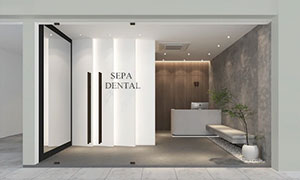
SEPA Dental - Bukit Jalil
E-5-1, Pusat Perdagangan Bandar Bukit Jalil, Persiaran Jalil 1, 57000, KL

SEPA Dental - Klang Bukit Raja
No. 10, Jalan Astaka 1D/KU2, Bandar Bukit Raja, 41050 Klang, Selangor.
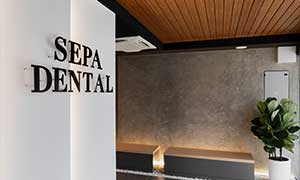
SEPA Dental - PJ SS2
83, Jalan SS 2/75, SS 2, 47300 Petaling Jaya, Selangor

SEPA Dental - Subang
8, Jalan SS 14/1, Ss 14, 47500 Subang Jaya, Selangor

SEPA Dental - Puchong
No 32A (Ground Floor), Jalan Puteri 1/4, Bandar Puteri, 47100 Puchong, Selangor
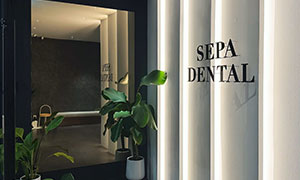
SEPA Dental - Seremban
12 (Ground Floor), Jalan KS 1, Kepayang Sentral, 70200 Seremban, Negeri Sembilan

SEPA Dental - JB Mount Austin
49-GF, Jalan Austin Heights 8/1, Taman Mount Austin , 81100 Johor Bahru
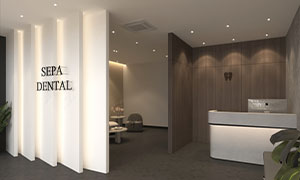
SEPA Dental - JB Sutera Utama
41, Jalan Sutera Tanjung 8/3, Taman Sutera Utama, 81300, Skudai, Johor
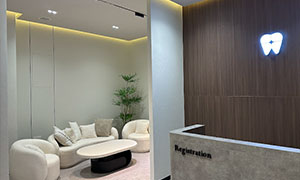
SEPA Dental - JB Eco Botanic
NO 37-GF, Jalan Eko Botani 3/4, Taman Eko Botani, 79100 Iskandar Puteri, Johor Darul Ta'zim
SEPA Dental Holdings Sdn Bhd
202201018177 (1463874-V)